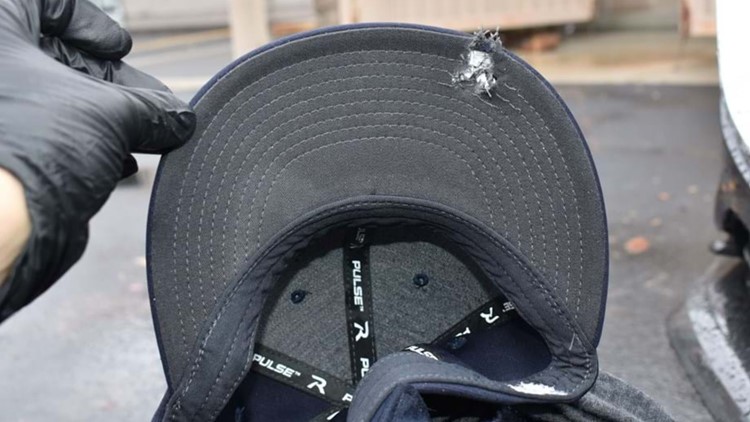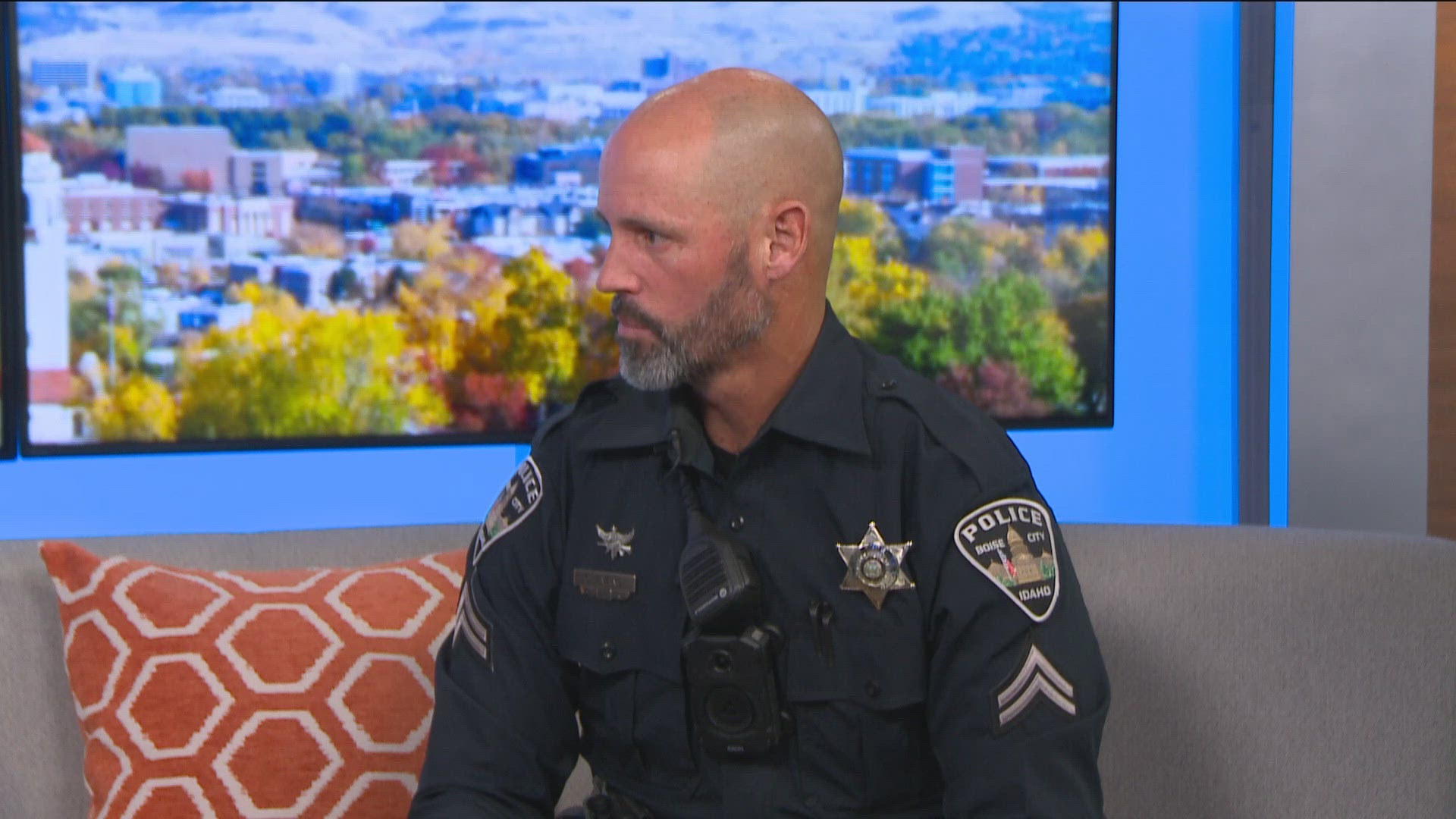BOISE, Idaho — Editor's Note: This article was originally published by the Idaho Press.
In the months before October’s deadly mall shooting, the suspected shooter flaunted firearms and lobbied for felons’ gun rights. But legal experts say he shouldn’t have been allowed to carry a gun.
As recently as April, Jacob Bergquist, 27, had on his criminal record a felony retail theft conviction in Illinois. He also told lawmakers, in Idaho and elsewhere, and local law enforcement officers that he was a felon. Federal law prohibits convicted felons from possessing firearms, unless they’ve been pardoned, their conviction has been expunged or set aside or their gun rights have been restored by the state agency that prosecuted them.
Mike Brown, a north Idaho attorney and gun rights advocate, said Bergquist was “most likely” federally prohibited from possessing a gun, and that prohibition should have been enforced
“You’ve probably heard the (National Rifle Association) and other groups say, ‘Let’s enforce the gun laws we have,’” Brown said in a phone interview. “Here’s a case, if this guy was prohibited, why wasn’t he in federal custody? They apparently had a tool to pick this guy up, and I don’t know why they didn’t.”
Officers from the Idaho State Police and Boise Police Department sent reports on Bergquist to Ada County prosecutors. After a brief investigation, prosecutors found the suspect’s felony conviction did not meet Idaho’s standards for crimes that prohibit firearm possession, and he was not charged, the Idaho Press previously reported.
A Boise Police officer also informed the Bureau of Alcohol, Tobacco, Firearms and Explosives (ATF), the federal agency that enforces federal firearms laws, that Bergquist likely was violating federal law, according to a police report.
A spokesman for the Seattle ATF branch, which oversees Idaho, did not respond to questions from the Idaho Press about whether the agency received that report or pursued charges against Bergquist.
Bergquist wasn’t shy about his felony conviction. In fact, he lobbied Idaho and South Dakota lawmakers to remove restrictions on firearm possession, which he called a “birthright.” Before allegedly killing two and injuring at least four others during a shooting spree at the Boise Towne Square mall, Bergquist openly carried a handgun at the Idaho State Capitol and Boise area stores. And he posted a video on a YouTube channel in which he fired a gun.
In February, Bergquist sent an email to Idaho Rep. Caroline Nilsson Troy, R-Genesee, explaining that he was a felon and asking the lawmaker to consider repealing provisions in Idaho’s gun rights prohibition code.
“By doing so we can make sure that a GOD granted right is truly a GOD granted right and not just a government privilege that it is today,” he wrote. “The Supreme Court has yet to hear a prohibited possessor case so meanwhile we have countless numbers of Idahoans arrested and convicted for simply possessing an inanimate object which is their birthright to doing so — please represenative (sic) help repeal some of the provisions in 18-310.”
Bergquist added, “We need to get back to cowboy rules — if someone is to (sic) dangerous to own a firearm, they’re to (sic) dangerous to be let out of incarceration.”
Idaho Code outlaws ownership or possession of firearms by people convicted of certain felonies, including comparable felonies in other states. Those include murder, assault, battery, burglary, robbery, rape and a number of other crimes, but Bergquist’s Illinois conviction, retail theft, is not on the list. That may have led Bergquist to believe he could carry a gun in Idaho.
Idaho’s felony firearm statute can be misleading, though not by design, said Alan Baker, a Lewiston attorney who specializes in firearms law. Baker helps clients in Idaho and Washington restore their gun rights after a prohibitory conviction. While Idaho Code restores gun rights to Idaho felons whose crimes aren’t on the aforementioned list, that does not change federal law, which mandates felons’ gun rights can only be restored by the state agency that prosecuted them.
Along with Brown, Baker has co-authored firearms legislation, including a 2015 bill that created Idaho’s enhanced concealed carry license. Last year, Baker pushed a bill that would’ve moved Idaho’s felony firearms prohibitions closer to federal standards. The bill ultimately was lost in the shuffle of the early coronavirus pandemic, but Baker still hopes for more consistency in the rules.
“We do people a disservice when we have a disparate standard,” he said.
While he’s a libertarian-minded gun rights proponent, Baker believes absolutist arguments about the Second Amendment, such as Bergquist’s, are unrealistic. “You have to have some sort of a filter,” he said. “We’ve got to police our own.” But regulations should also provide a “robust and efficient and straightforward” process for restoring gun rights for those who can show they’re responsible, he said.
Ryan Suppe is the Boise City Hall and Treasure Valley business reporter for the Idaho Press. Contact him at 208-344-2055 (ext. 3038). Follow him on Twitter @salsuppe.
Watch more crime news:
See the latest Treasure Valley crime news in our YouTube playlist:



